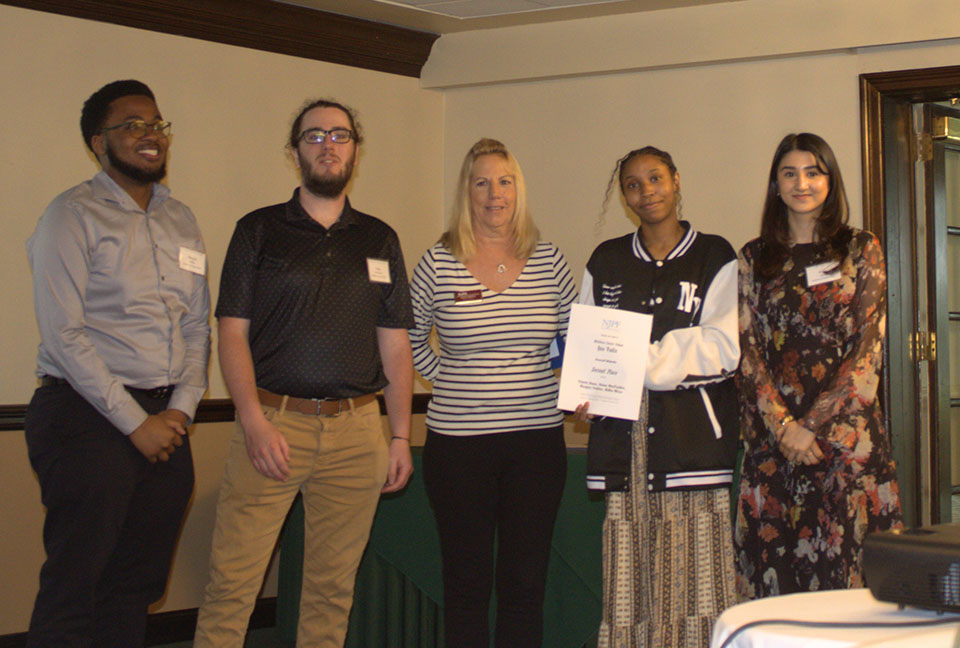Middlesex College Journalism Program Receives Scripps Howard Fund Grant
The funding will be used to upgrade equipment, tools, and professional training as the program shifts to a digital-centric focus.

Middlesex College is one of four community colleges across the country chosen to receive a $12,000 grant for its journalism education program from the Scripps Howard Fund, a media company that owns multiple national newspapers and radio and television stations.
The funding will be used to upgrade equipment, tools, and professional training as the program shifts to a digital-centric focus.
“You could say this changes everything,” said Melissa Edwards, journalism professor and faculty advisor for the Quo Vadis campus newspaper. “This means in the fall, I will start taking some courses, updating my skills, and learning how we can increase engagement on our website and social media. By the time we get to spring and summer, we will look like a different kind of program.”
The Scripps Howard Fund journalism grant is offered to empower students from a variety of backgrounds and equip them with the tools and resources to thrive in the media industry. The College will use the grant to enhance its journalism program with a redesigned comprehensive curriculum focused on digital journalism. Students will gain industry-specific skills in multimedia storytelling and social media engagement, collaborating with community partners to transform journalism education and local news coverage.
“This grant from the Scripps Howard Fund is a transformative investment in the future of journalism at Middlesex College,” said Middlesex College President Mark McCormick. “The world of reporting, writing, and being a journalist has evolved at such a rapid pace. This funding ensures that our students are learning the skills today’s media landscape demands, including storytelling across digital platforms, audience engagement, and multimedia production. We are proud to be among the few community colleges nationwide recognized for our commitment to journalism education.”
News is now consumed in so many different forms, such as podcast interviews or social media posts. With this understanding, Quo Vadis is becoming a fully digital production, no longer printed, reflecting another shift in the media landscape.
“We have potential on our website to add video and expand our social media presence, [which] wasn’t something we thought of when we first started,” said Edwards, who partnered with the College’s grant writing team to apply for the grant. “We could use special lighting and a studio space. This was a golden opportunity because we have been trying for years to make this happen.”

